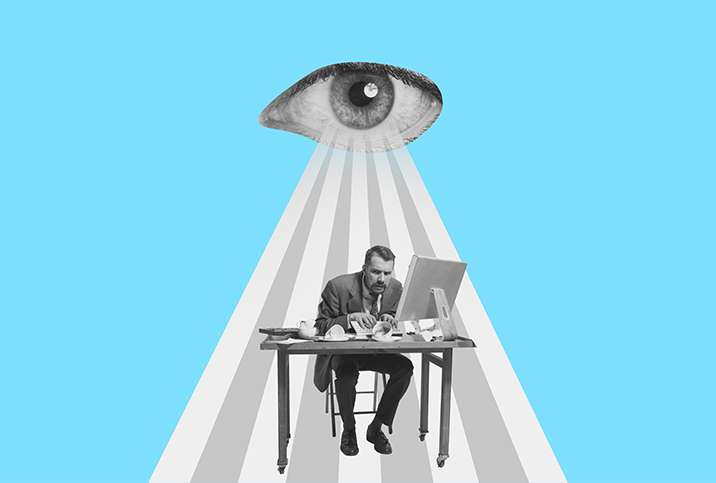Living and Dating With Stress

Stress is a physical, mental or emotional response to a demand or challenge. It is generally caused by a variety of factors, such as work, school, relationships or personal problems. Short bursts of stress help people feel motivated and accomplish tasks, but chronic stress or too much stress can have a negative impact on your life and health.
Beyond the effects on general health, stress can also significantly impact your sexual health. Chronic stress can increase your risk of developing diabetes or hypertension, and both of those conditions can lessen sex drive and, for men, cause erectile dysfunction (ED).
Additionally, stress can affect the production of hormones in your body. For example, an increase in the primary "stress hormone" cortisol—which increases sugar in the bloodstream—can trigger increased production of stress hormones. It should also be noted that stress can lower testosterone levels, which play an important role in your libido.
Learn how stress impacts your everyday life and dating, and what you can do to prevent and cope with stress.
Living with stress
Humans have evolved to handle small bursts of stress, even if it's high stress, said Marni Chanoff, M.D., an integrative psychiatrist on the faculty of Harvard Medical School and McLean Hospital in Massachusetts and founder of Joy In Health, a mental health practice. This type of stress gives us motivation and energy to complete a task or overcome a challenge.
As part of a regular day, this could look like preparing for a presentation, accomplishing a difficult task at work or checking an important item off your to-do list. In situations such as these, where a stressful event takes place and eventually passes, your body is able to respond to the challenge and reset your nervous system upon completion, she explained.
In situations of chronic stress, your nervous system is not always able to reset.
"[Chronic stress] creates sort of a repetitive response to the nervous system," Chanoff noted. "The nervous system is in high gear most or all of the time under chronic stress, so it's not resetting."
In this case, she said, stress can have a negative impact on your physical, mental or emotional health, and day to day, this kind of stress can cause anxiety, worry, irritability, agitation or restlessness.
Additionally, you may notice you have headaches, muscle tension, stomachaches and physical pain, or you're eating more or less than you typically do. Chronic stress can cause you to feel overwhelmed and make it difficult to focus or make decisions.
If you're experiencing chronic stress or you're under more stress than you're able to cope with, you may notice yourself constantly thinking about stressors without paying much attention to other aspects of your life, such as hobbies, friends and interests.
"If you're in stress mode, you may not be thinking of what you are going to do Saturday night, you might just be thinking about how you're going to get through the rest of the day," Chanoff explained. "By the time Saturday rolls around, you might be exhausted because you've been stressed all week."
Too much stress or chronic stress can impact your everyday life by causing isolation, whether due to limited time spent with other people, feeling exhausted, being preoccupied with work, not seeing any benefit to spending time with other people or not even thinking to make plans with others.
According to the Stress in America 2022 Survey, conducted by the American Psychological Association (APA), "an alarming proportion of adults reported that stress has an impact on their day-to-day functioning, with more than a quarter [27 percent] saying that most days they are so stressed they can't function." In addition, 34 percent of adults reported feeling completely overwhelmed most days.
Chronic stress can lead to health complications, including weakening the immune system and mental health challenges, and in some studies, chronic stress has been linked to heart health complications. All of these issues can have a major impact on how you're feeling.
Dating with stress
There are a number of ways stress can impact dating. For example, someone experiencing overwhelming stress or chronic stress may have a hard time even finding time to go on dates or stay in touch with someone they might want to date. If you're under financial stress, it may be hard to contemplate going on a date because it might be too expensive, which may prevent you from dating at all.
Once you're on a date, stress can cause you to be anxious or withdrawn. You may have a hard time connecting with your date or staying focused on the conversation if you're preoccupied with what's stressing you out.
"If you're stressed and you show up on a date, you [may] not be presenting your best and most authentic self," Chanoff said. "Perhaps you're feeling even more nervous than you normally would on a date, so you're not thinking as clearly and you're not able to express yourself as well. You're presenting with stress, and people might see how stressed you are and they might not get to know the real you."
Stress can cause relationship conflicts, manifesting as irritability, being less empathetic or having less understanding of the person you're dating, she added. All of which can lead to relationship conflict or trouble resolving conflict.
Stress can lower your libido. While sex is only one of many ways to share intimacy, some people may find it frustrating if they are not able to sexually connect as often as they would like with a new person they're dating. Plus, stress can make it difficult to get aroused, and may lead to erectile dysfunction (ED) in men and insufficient lubrication in women.
While there are many ways to enjoy sex without an erection or lubrication, some people struggle with feeling shame or inadequacy about these challenges, which can make it difficult to connect with the person they're dating.
How to cope with stress
While you may not always be able to prevent stressful events from happening, there are several ways that you can increase your capacity to cope with stress and help your nervous system reset after a stressful event.
Acknowledging that strategies vary from person to person, Chanoff said coping with stress and preventing chronic stress is a matter of finding the tools and strategies that work best for you. She recommended asking yourself what behaviors help you feel calm, relaxed, safe and secure, and incorporating these activities more often into your day.
Two of the most important behaviors that prevent chronic stress and increase your capacity to handle stress are getting quality sleep and eating enough food.
"People can practice good sleep hygiene so that they have a better chance of getting a good night's sleep," she said.
This routine can include avoiding screens like your phone, TV and computer leading up to bedtime, keeping your bedroom dark and at a cool temperature, and going to bed and waking up at consistent times each day.
She also suggested limiting your caffeine intake and being sure you eat enough nutritious food to give your body the fuel it needs. Moving your body intentionally also helps reset the nervous system.
Other important elements of preventing stress are taking breaks from work and limiting the amount of time you're on screens and social media, she added. For many people, work is a major source of stress, and taking small breaks throughout the day can help you cope with it, instead of only leaving time to decompress at the end of the day.
In addition, you should consider the kind of media you are consuming.
"Be very aware of what is 'good' media content to consume versus feeding the beast," Chanoff noted. "So many people are stressed, and the content of the shows they watch or the social media they bring in is not helpful."
You should also avoid isolating yourself by reaching out to trusted friends, family and colleagues.
"It's OK to reach out for support or for help, whether it's a favor or just even a phone call, [and] it's OK to share what they're experiencing," Chanoff said. "Chances are that others around you are [seeking support] as well."
Therapy is another option for coping with stress and increasing your capacity to manage stress. If you're also struggling with anxiety, depression or trauma, therapy becomes an even more important resource to seek.
However, before you rush off to schedule therapy, Chanoff encouraged people to learn more about stress and the techniques to manage it, as there are many free resources available and therapy can be expensive and difficult to access.
Resources for stress management
Numerous books, apps, websites and dedicated professionals can provide you with information about stress and strategies for managing it:
- "Burnout: The Secret to Unlocking the Stress Cycle" is a book written by Emily and Amelia Nagoski containing science and stories on stress and how to manage it.
- Headspace is an app with guided meditations specifically for coping with stress and improving sleep.
- "A Mindfulness-Based Stress Reduction Workbook," written by Bob Stahl and Elisha Goldstein, takes you through an 11-week program to reduce stress.
- Insight Timer is a free app to help you manage your sleep, anxiety and stress.
- The American Institute of Stress website has many invaluable resources, advice and much more.


















